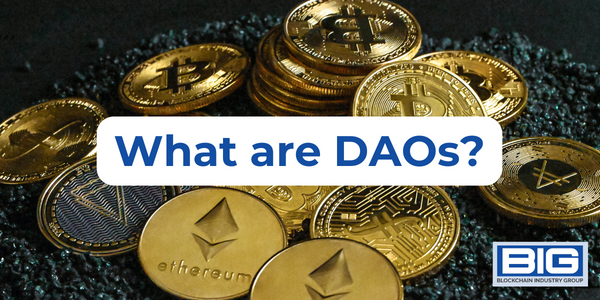
In recent years, a new concept has emerged within the world of blockchain and cryptocurrency: decentralized autonomous organizations, or DAOs for short. At its core, a DAO is a decentralized network of individuals or organizations that are able to make decisions and take action based on predetermined rules and protocols, without the need for central authority or leadership.
DAOs are made possible by blockchain technology and decentralized applications (dApps), which allow users to create and manage organizations in a decentralized manner. DAOs are typically governed by smart contracts, which are self-executing contracts with the terms of the agreement between buyer and seller being directly written into lines of code. This allows DAOs to operate in a transparent and automated manner, without the need for intermediaries or central authorities.
One of the key benefits of DAOs is that they allow for decentralized decision-making and governance. This means that decisions are made based on the consensus of the members of the organization, rather than being dictated by a central authority. This can help to ensure that the interests of all members are taken into account, rather than just those of a few key individuals.
Another benefit of DAOs is that they are transparent and accountable. Because DAOs are governed by smart contracts and operate on a public blockchain, all transactions and decisions are recorded and can be viewed by anyone. This transparency can help to build trust and confidence in the organization, and can also help to prevent fraud or mismanagement.
DAOs also offer the potential for greater efficiency and speed. Because they are automated and decentralized, DAOs can make decisions and take action faster than traditional organizations, which may be slowed down by bureaucracy or the need for consensus. This can be especially useful for organizations that need to make quick decisions or respond to rapidly changing circumstances.
Finally, DAOs offer the potential for greater flexibility and adaptability. Because they are not bound by traditional organizational structures or regulations, DAOs can be more easily adapted to changing circumstances or needs. This can be especially useful for organizations that are operating in fast-moving or rapidly changing environments.
5 Benefits of Blockchain Technology
—
An Introduction to Block Chain Technology
—
Block Chain Misinformation
There are many different types of DAOs, with a wide range of purposes and goals. For example, some DAOs are focused on providing financial services, such as lending or investment. Other DAOs are focused on social or environmental causes, and seek to use their resources and influence to make a positive impact in these areas.
Overall, decentralized autonomous organizations represent a new and innovative approach to decentralized governance and collaboration. By allowing individuals and organizations to work together in a decentralized manner, DAOs have the potential to disrupt traditional organizational structures and create new opportunities for collaboration and innovation.



